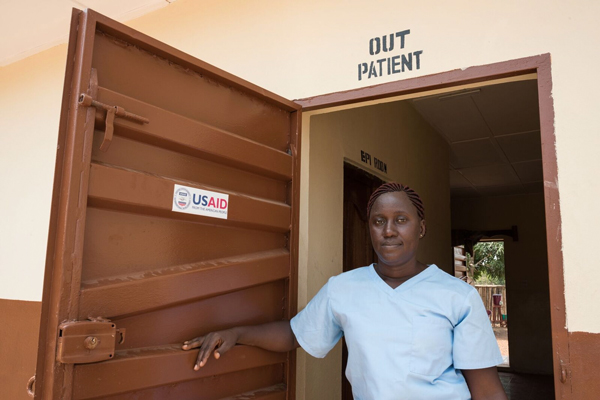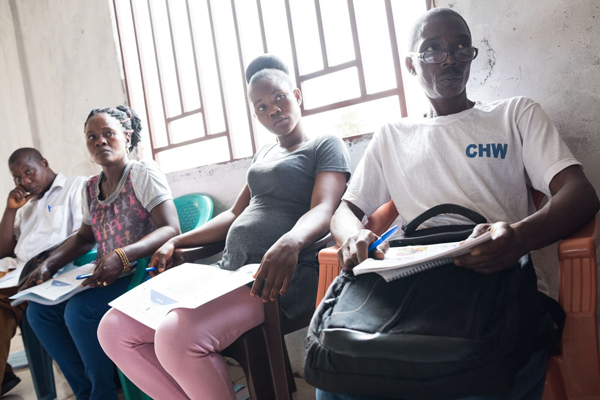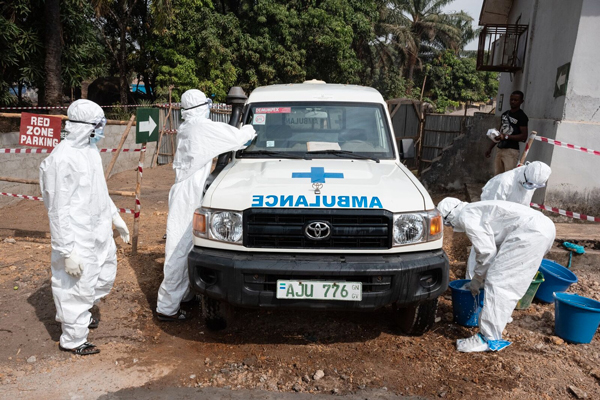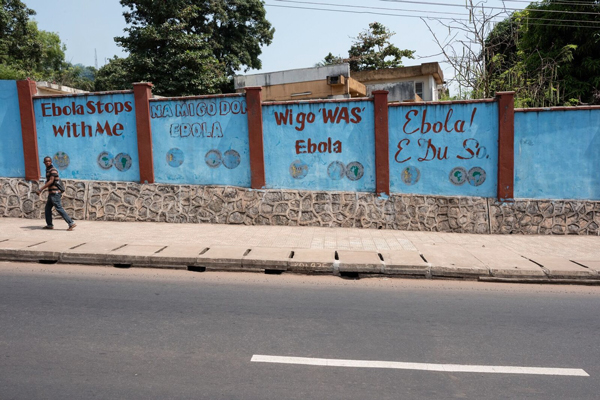Even after their discharge from a treatment center, Ebola survivors may suffer health complications that require primary and specialty care. These conditions can be neurological, psychological, ocular, renal, musculoskeletal, among others. Specialty care services are often limited or unavailable in low resource settings; thus it may be necessary to renovate health facilities, procure equipment, and build capacity to provide these types of services to Ebola survivors and others. To learn more about some of these specialty care services see the toolkit pages on Eye care, Including Cataract Surgery, Mental Health, and Renovating Facilities.
Upgrading Specialty Services
Priorities and Lessons Learned
In partnership with the Liberia College of Physicians and Surgeons, a graduate medical residency program, APC strengthened specialty care services for Ebola survivors by building capacity within the health workforce. Clinical specialists trained medical students, residents, and clinicians, while also providing specialized medical care in clinical areas that disproportionately affect the EVD survivor community. This program contributed to improved patient access to specialized care, decentralized service delivery, and increased health service utilization rates.
The CPES program seeks to address challenges faced by Ebola virus disease (EVD) survivors through an integrated partnership approach between Government and development partners which strengthens service delivery to EVD survivors contributing to improving the overall survivors’ well-being.
The CPES program has without any doubt responded to the needs to restore Ebola virus disease (EVD) survivors’ confidence in a country health system heavily disrupted by the outbreak; and ensured that their special needs were addressed in a timely and efficient manner.
L’épidémie de la maladie à virus Ebola qui a frappé la Guinée en 2014-2015 a été une crise qui avait gravement menacé le système de santé et l’économie du pays. Cette épidémie a été à la base de l’émergence de plusieurs problèmes médicaux, psychosociaux, socio-économiques et professionnels dans le pays.
Le programme ETP&SS vise à atteindre l’objectif de réduire le risque de nouvelles flambées d’Ebola en Guinée en appuyant le programme national de SA-Ceint. Il faut souligner ici que l’objectif principal de la SA-Ceint est de minimiser le risque de la résurgence de la maladie à virus Ebola à travers la surveillance active en ceinture des guéris d'Ebola soutenue par les communautés locales dans lesquelles vivent les guéris d’Ebola.
The assessments confirmed that survivors have sought primary treatment from health facilities when they first get sick, with more than 90 percent of both baseline and endline respondents reporting that they had received treatment at a health facility within the past six months (92.3 and 91.7 percent, respectively).
Related Journal Article(s)
This article examines records from 1001 consultations from 166 patients between February and June 2015. Most frequent complications were arthralgia, fatigue, abdominal pain, headache, anemia, skin disorders, back pain, and alopecia. Ocular complications in 94 survivors (uveitis the most common)—redness in eyes during acute illness, was a predictor for development of uveitis.
Stories and Interventions
Dr. Senga Omeonga, himself an Ebola survivor working at St. Joseph’s Catholic Hospital in Monrovia, treats some of the country’s many Ebola survivors. APC supports two private faith-based hospitals, St. Joseph’s Catholic Hospital and Eternal Love Winning Africa (ELWA) Hospital, to provide primary and secondary health services for Ebola survivors. To get survivors connected with specialty services, APC has helped improve referral pathways within the country’s public health system.





